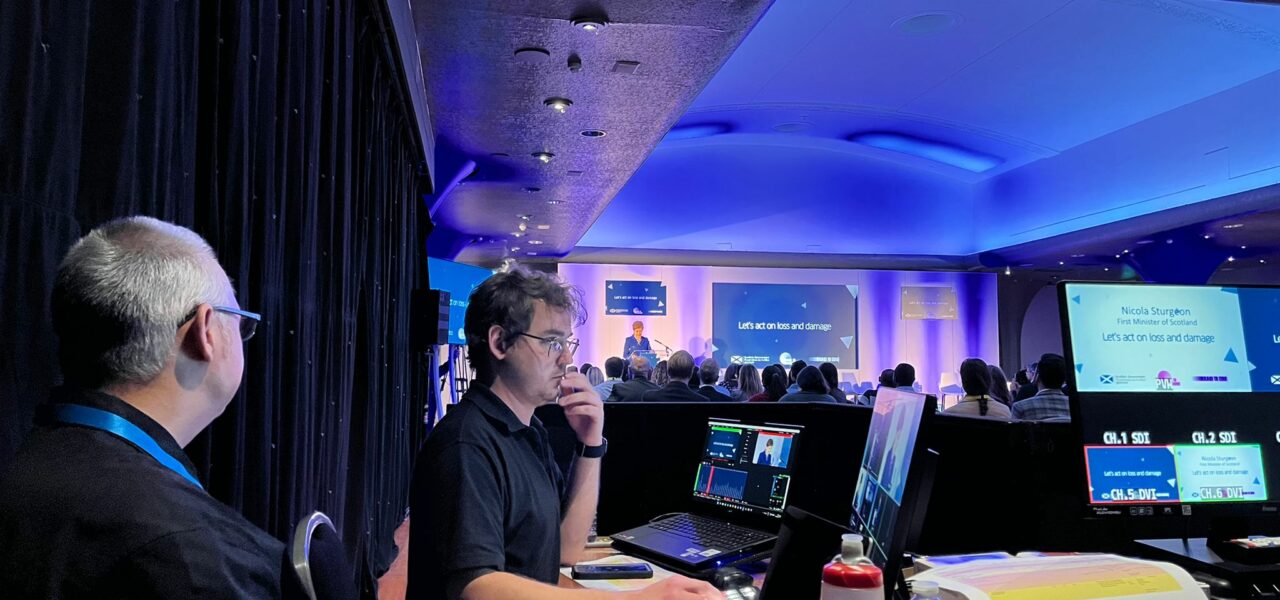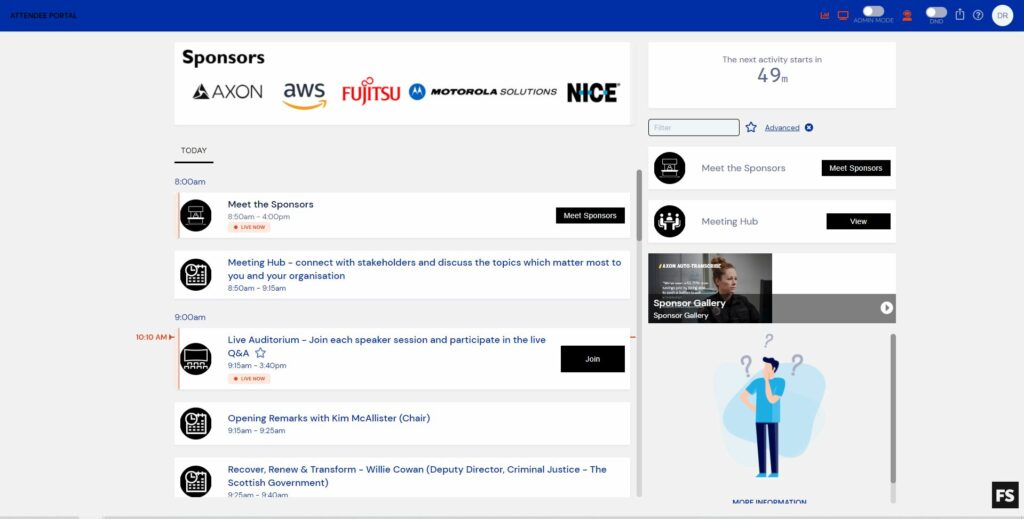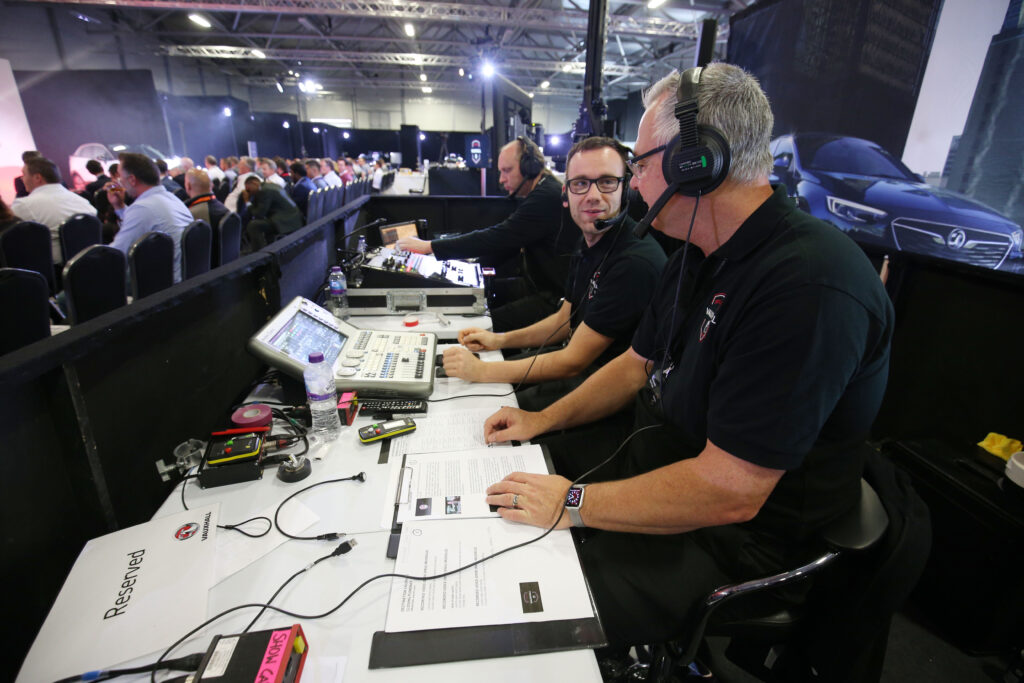Gigga-Guide: Top 7 Challenges Faced in Hosting Public Sector Events (and how to solve them)

The public sector is unquestionably a cornerstone of our society. The facilitation of communication, knowledge sharing, and collaboration among government agencies, stakeholders, and citizens is what keeps modern civilisation turning. Moreover, conferences, seminars, and staff training days are essential components of these efforts, and the integration of Audiovisual (AV) technology is becoming increasingly pivotal in delivering successful events.
With everyone feeling the rising cost of living and fall out from COVID-19, challenges are evermore likely to crop up in your event planning. Our experts explored some of the key issues the public sector is most likely to face when planning an event:
1. Budget Constraints
In the public sector, tight budgets often constrain spending on crucial aspects such as venues, branding, catering, and AV. When these elements align, they can propel your event toward success.
Despite budget constraints, there are solutions available. Many venues offer a range of comprehensive packages that include vital services such as AV and catering – delivered via partnerships with reliable companies. This approach helps you avoid the unnecessary cost and hassle of dealing with expensive external service providers. Further helping you to still deliver top-notch events without breaking the bank.
2. Accessibility and Inclusivity
Leaps and bounds have been made in recent years in how the workplace has become more accessible for all. In agencies more connected to accessible and inclusive government policy, we’ve been able to adapt internal legislature to afford more adjustments that make it easier for people to engage with working practices. Shouldn’t your event accomplish this too?
AV solutions can make it even easier to promote accessibility when hosting your event. For Hybrid and Virtual events, live closed captioning and subtitles can be provided for little extra cost. Moreover, a part-virtual event helps people with conditions affecting their movement or social stamina to still engage in your conference, seminar, or staff training day.
3. Technical Glitches
When a technical glitch happens, whilst not destroying your event, it can stop your momentum. Without a full rehearsal, you might not know what parts of your event are most susceptible to error. By using a respected AV company, you ensure that your equipment will be of the highest quality and you don’t need to spend hours testing or building parts of your event. It’s always recommended that you have a technician on hand to provide comprehensive support in mitigating any potential errors.
4. Data Security
In the public sector, the significance of data security is on the rise. With sensitive information readily accessible, it is imperative to ensure its protection. This can be achieved through the proactive implementation of robust cybersecurity measures and partnering with companies that maintain transparency and GDPR compliance in all technical aspects. By doing so, you reduce the risk of data breaches and unauthorised access resulting from malicious attacks.
Likewise, opting for virtual platforms equipped with advanced encryption features and selecting venues with secure network connections can elevate your event to new heights. These choices guarantee the safeguarding of sensitive information belonging to high-profile individuals, and help to keep it beyond the reach of unauthorised entities.
5. Content Management
Effective content management always plays a crucial role in hosting successful events. A common hurdle in this area involves organising and sharing event materials efficiently. Fortunately, the solution lies in user-friendly content management systems. Public sector events can tap into these tools, establishing a digital hub for seamless storage and distribution of event materials. This ensures attendees can easily access online archives, swiftly retrieving essential information, linked to each specific session.
Virtual events, in particular, can reap substantial benefits from such technology. Virtual event platforms offer features that simplify content distribution, including the ability to link specific content to corresponding sessions. This integrated approach not only addresses content management challenges but also elevates the overall event experience, guaranteeing immediate access to valuable information for all participants, including high profile individuals.


6. Engaging Remote Participants
While hybrid events are all the rage, many organisations can find them counterproductive to their goals. We often hear observations that previous hybrid events have resulted in reduced participation. At Giggabox, we recommend focusing on remote engagement factors such as virtual breakout sessions, Q&As, live chat functions, and polls. These supplementary services encourage participants to build up their level of participation throughout the event, giving meaningful insights to a group who may not have been able to attend your conference without these virtual features.
7. Sustainability
Sustainability is crucial, not only for our public image but also as a matter of social responsibility. At Giggabox, we aim to reduce the environmental impact of our operations, as well as helping you to create a sustainable event environment. A proactive approach will always work best when trying to achieve this goal. Here are some tips to tackle this challenge head first:
- Reduce, Reuse, Recycle: By minimising litter and maximising recycling opportunities, you not only reduce landfill waste, but lower net carbon emissions for your organisation.
- Work with Companies Devoted to Sustainability: Being dedicated to finding environmentally conscious vendors who share your sustainability goals is a great way to ensure that the impact of your event spans across organisations and sectors.
- Start From the Very Beginning: When sustainability measures are implemented half way through an events process, it can result in uncoordinated and disassembled efforts. Bring together your team from the start of your event’s planning process to discuss your commitment to sustainability and how this will be incorporated into each of your roles.
The AV industry is promoting the reduction of our collective carbon footprint through sustainable working practices and carbon offsetting. By making these considerations, the events industry can significantly contribute to promoting a greener world.


Enhanced AV Solutions for Public Sector Events
Incorporating these solutions into your event planning process can help the public sector overcome the challenges of hosting successful conferences, seminars, and staff training days. By addressing these issues, you can ensure that your events run smoothly and fulfil their mission of facilitating communication and collaboration.